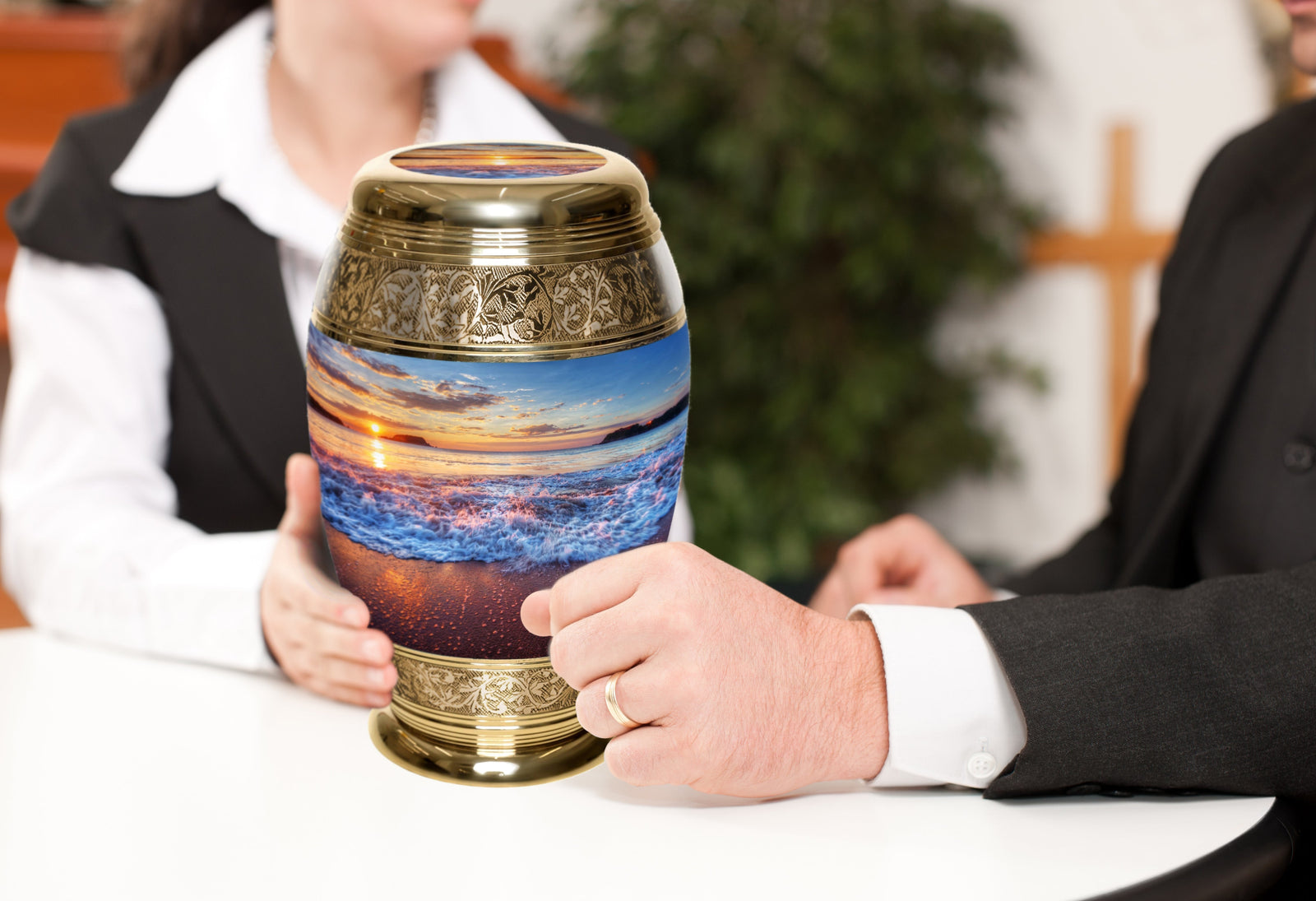When flying with cremated remains, travelers are often concerned about how to navigate airport security with an urn. The U.S. Transportation Security Administration (TSA) has specific guidelines regarding traveling with cremated remains.
As for metal urns:
As for metal urns:
Metal Urns and Screening
Metal urnscan obstruct the view of the contents during X-ray screening, making it difficult or impossible for TSA officers to determine what's inside. As a result, metal urns might not be allowed to pass through security.
Alternative Containers
If you're planning to travel with cremated remains, consider using a temporary container that is made of a material that can be X-rayed, like wood, plastic, or a non-lead-based ceramic. After arriving at your destination, you can transfer the remains to a metal urn if desired.
Manual Inspection
TSA officers will not open containers with cremated remains, even if the passenger requests them to do so. All urns must go through the X-ray machine. If the contents inside the urn can't be cleared through X-ray inspection, then the urn will not be allowed in the carry-on bag.
Checked Bags
While you can place cremated remains in checked bags, TSA recommends keeping them in your carry-on to prevent potential damage or loss in the cargo hold.
Documentation
While TSA doesn't require any documentation for transporting cremated remains, some airlines might. Always check with your airline ahead of time. Additionally, if you're flying internationally, be sure to research the regulations of the country you're traveling to.
Communication
Always communicate with TSA officers about the contents of your carry-on, especially when carrying sensitive items like cremated remains.
Lastly, while the TSA provides guidelines for the U.S., other countries might have different regulations. Always check with both your airline and any international security agencies if traveling abroad.
For the most up-to-date guidelines, you can check the TSA's official website or contact them directly before your travel date.
Lastly, while the TSA provides guidelines for the U.S., other countries might have different regulations. Always check with both your airline and any international security agencies if traveling abroad.
For the most up-to-date guidelines, you can check the TSA's official website or contact them directly before your travel date.






Leave a comment (all fields required)